How catalytic capital and blended finance can drive growth across Africa
Blended finance and collaboration with the private sector are key to unlocking Africa's full potential – but it's also clear that a sustainable future for the continent must be powered from within. A powerful call to reimagine how the continent mobilises its own resources for sustainable growth was made at this year's AVPA conference, held in Nairobi. Our correspondent Vivian Nyaguthie – a young writer and social innovator based in Kenya – was there to report for Pioneers Post.

If the passion at AVPA’s 2025 Global Annual Conference could be measured, it would have tipped the scale.
The session opened at Nairobi’s Trademark Hotel on 3 November with the unmistakable spirit of collaboration, connection, and purpose. Under the theme ‘Future-Proofing Africa: Driving Sustainable Investments and Innovations for Resilient Growth’, over 400 investors, policymakers, and thought leaders from more than 20 countries gathered to explore how catalytic capital and blended finance can drive inclusive growth across the continent.
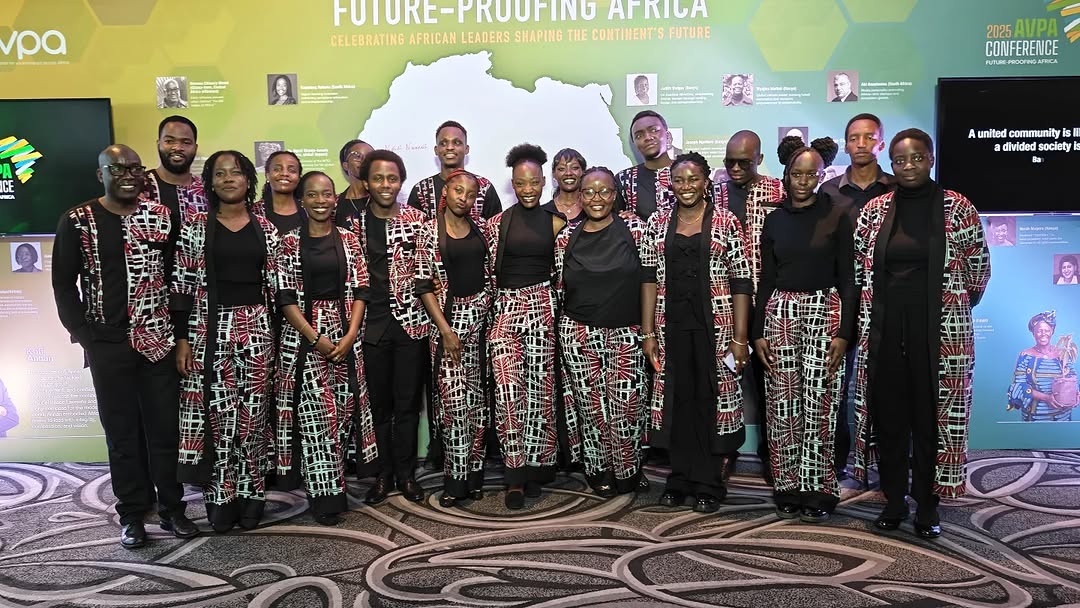 The Nairobi Chamber Chorus (right) opened with a beautiful South African prayer song, and the soloist’s voice was so powerful it gave the audience goosebumps.
The Nairobi Chamber Chorus (right) opened with a beautiful South African prayer song, and the soloist’s voice was so powerful it gave the audience goosebumps.
In his welcoming remarks, AVPA Pan-African Board Chair Adedotun ‘Dotun’ Sulaiman framed ‘Future-Proofing Africa’ as a call to protect the continent’s immense potential rather than predict its future. He emphasised that true strength lies in building adaptive systems that can withstand shocks such as COVID-19, climate change, and the ripple effects of the Russia–Ukraine war, factors that have tested Africa’s economies and supply chains in recent years.
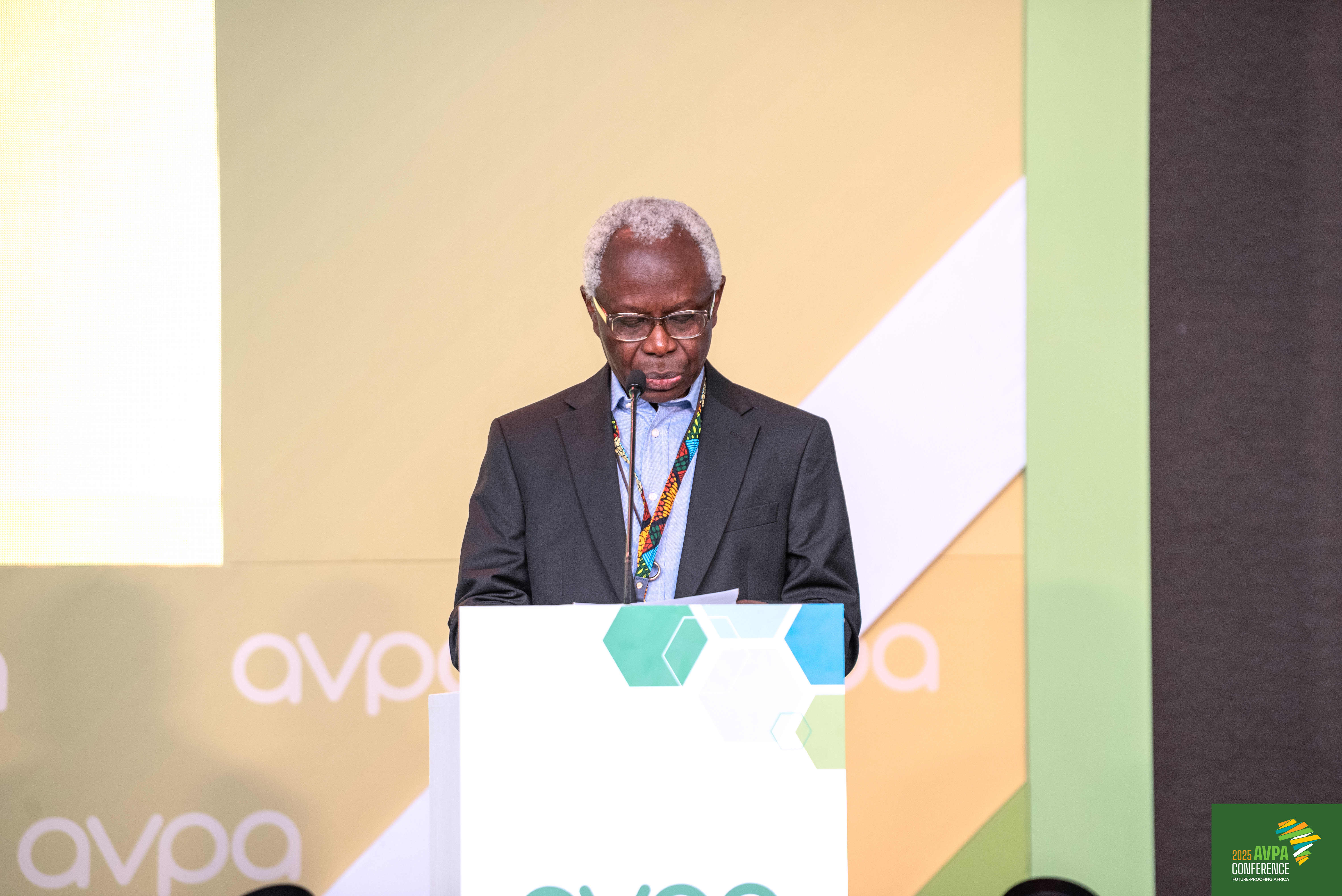 Sulaiman (left) urged stakeholders to bridge gaps between capital and need, innovation and scale, and intent and execution through partnerships and long-term thinking.
Sulaiman (left) urged stakeholders to bridge gaps between capital and need, innovation and scale, and intent and execution through partnerships and long-term thinking.
Thereafter, AVPA CEO Dr Frank Aswani (main photo above) called for a reimagining of how Africa mobilises its own resources for sustainable growth. He highlighted the $200bn annual SDG financing gap and dwindling aid flows, illustrating the scale of the challenge and the urgency of tapping domestic capital for social impact.“If a solution can work in Africa, it can work anywhere in the world,” he said, capturing Africa’s resilience and drive for locally led growth.
His message set the tone for three days of conversations on Africa’s sustainable future.
Positioning for opportunity
The first keynote speaker, British Robinson (main photo above, with Frank Aswani), Chair of Africa at the Milken Institute, drew on over 30 years of experience across the continent to explore how sustainable finance and a mindset shift can unlock Africa’s next phase of growth.
“Future-proofing sounds defensive, like termite-proofing homes,” she said. “But really, it is about positioning for opportunity.”
Robinson urged the audience to rethink “future-proofing” not as a defence mechanism to uncertainty but as a proactive strategy for opportunity, rooted in Africa’s strong economic fundamentals and vast domestic assets. She called for philanthropy to evolve from short-term giving to deploying catalytic capital that transforms ideas into sustainable investments.
“Africa cannot grant its way to prosperity,” she warned.
Africa’s transformation, Robinson noted, will be driven by African capital, institutions and innovation, supported by blended finance and the growing influence of local asset owners. Reaffirming her optimism, she reminded delegates that Africa is not preparing for a crisis but positioning for opportunity. The continent, she said, is investable, competitive, and ready, and investors must decide whether to engage now or be left behind.
But what evidence supports her optimism?
Robinson pointed to over $4tn in investable domestic capital waiting to be mobilised, nearly a hundred times current aid flows. Across the continent, pension funds, capital markets, and sovereign wealth funds are reshaping the investment landscape and driving African-led growth. Notably, Ghana, Nigeria, and Togo have all received credit upgrades this year, a testament to rising investor confidence. Meanwhile, African infrastructure continues to show resilience, delivering stable returns of 8-9% over the past decade with low default rates.
Robinson closed by urging leaders to shift from future-proofing to future-building and act with urgency and unity to shape Africa’s next stage of growth.
Private sector must drive change
The second keynote speaker, Isaac Awuondo, Chair of NCBA Group Kenya, drew on his 40 years in banking to emphasise the private sector’s vital role in bridging Africa’s vast sustainable development financing gap, estimated at over $200 billion annually. He urged businesses to champion change through community-centered innovation and sustainable investment, noting that “the private sector needs to provide the funding to drive change.”
Awuondo shared an example from Kenya’s digital economy: the highest volume of borrowing and transactions occurs between 3am and 5am, when small merchants and SMEs are most active, a testament to the continent’s entrepreneurial spirit and the need for responsive financial systems.
By working together, banks, telcos, DFIs and governments can drive investments that yield profits and uplift communities
While Africa faces a challenging funding landscape, Awuondo said its innovators continue to demonstrate creativity, resilience and partnership. He identified capital misallocation as a major barrier, with most impact investment flowing into a few large deals while growth-stage enterprises remain underfunded. To address this, he advocated for blended finance models that combine catalytic, philanthropic, and commercial capital to reallocate risk and unlock private investment at scale.
“Capital alone is not a guarantee of success,” he said. “Look past the problems and you will find people creating powerful solutions. By working together, banks, telcos, DFIs and governments can drive investments that yield profits and uplift communities.”
Unlocking transformative growth
Africa is bleeding value by exporting raw materials while importing finished goods at a high cost. Day two of the AVPA Conference confronted this paradox head-on, spotlighting how partnerships, innovation, and long-term capital can unlock transformative growth.
The first keynote address was delivered by Joseph Ogutu, Chair of the AVPA's East Africa Board and also chair of the Safaricom Foundation, one of the largest corporate foundations in Kenya. He drew on 40 years of experience to show how collaboration drives progress and saves lives, literally.
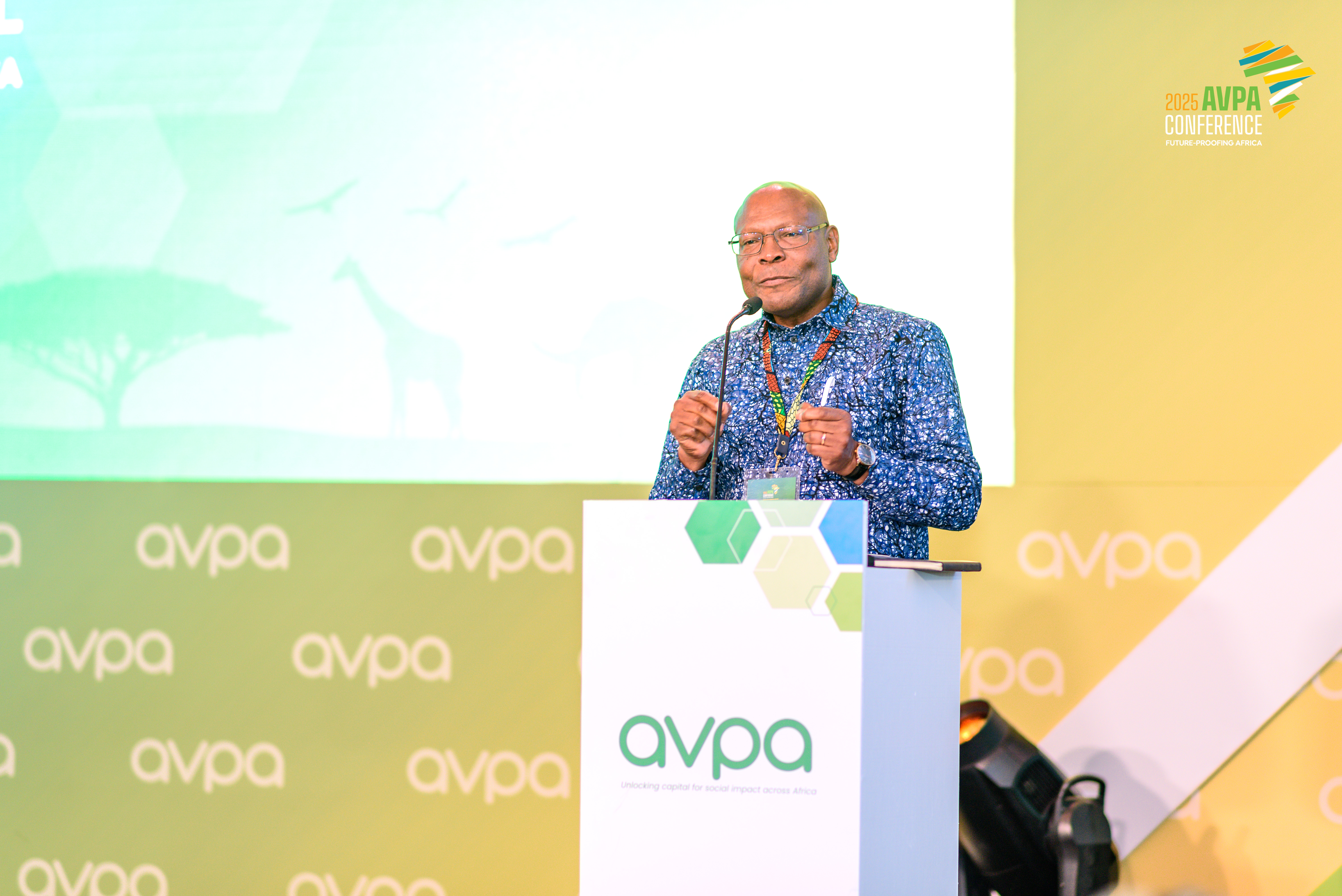 Ogutu (pictured, left) cited Safaricom’s partnerships with stakeholders that halved maternal mortality in Lamu, Kenya, through initiatives such as boat ambulances. He said, “No woman should die while giving birth.”
Ogutu (pictured, left) cited Safaricom’s partnerships with stakeholders that halved maternal mortality in Lamu, Kenya, through initiatives such as boat ambulances. He said, “No woman should die while giving birth.”
Pivoting to education, Ogutu highlighted Safaricom’s ‘Citizen of the Future’ initiative, which aims to support learning environments in only 2% of Kenyan schools. Clearly, the gap is too large. Ogutu called for a new model to fund education, stressing, “We cannot rely on the government alone.” He added that grants are insufficient and urged a rethink of education financing so that graduates are globally competitive and market-ready. Preparing young people for a globally competitive future requires new models that unite government, private sector and communities. Ogutu challenged the audience to see themselves not just as investors, but as essential partners in national progress, measuring impact not in profit margins, but in lives changed as the foundation of enduring sustainability.
Business 'with' not 'in' Africa
The second Keynote Speaker, Sanda Ojiambo, Assistant Secretary-General and CEO of the United Nations Global Compact, virtually urged a shift from “doing business in Africa” to “doing business with Africa”. She emphasised that SMEs, women and youth are future builders and owners of value chains, and that investment should focus on developing capabilities that create jobs, scalable projects and long-term growth.
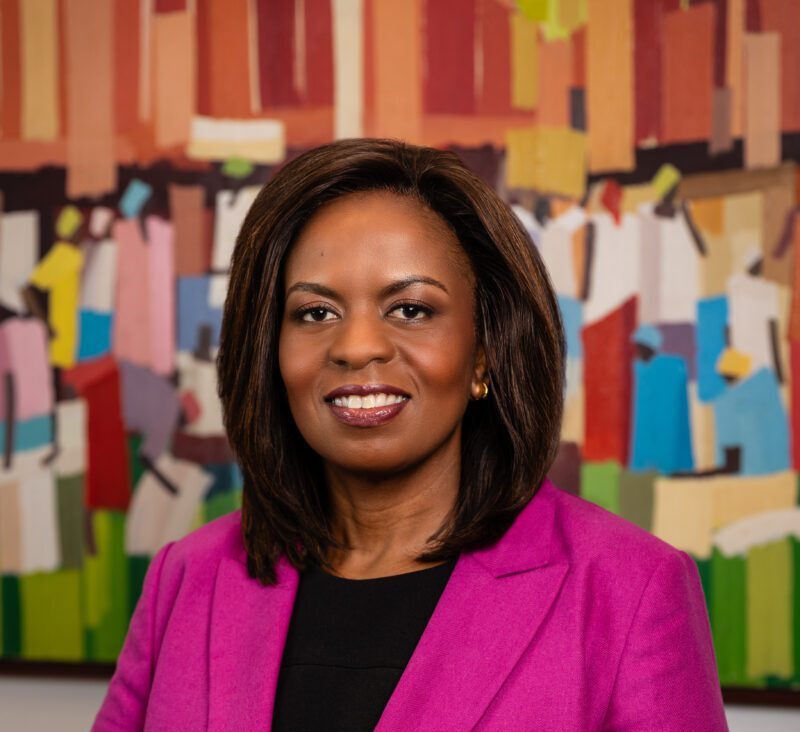 Ojiambo (pictured, left) called for stronger market architecture, de-risking African markets and harmonised policies to attract and sustain investment, highlighting AVPA’s role in connecting capital to credible opportunities and scaling African innovation.
Ojiambo (pictured, left) called for stronger market architecture, de-risking African markets and harmonised policies to attract and sustain investment, highlighting AVPA’s role in connecting capital to credible opportunities and scaling African innovation.
Mad paradoxes
“I am MAD!” BIDCO Group Chairman Vimal Shah began by proclaiming.
Amid bated breaths, he explained it stood for “Making a Difference” in Africa.
After the laughter subsided, he challenged Africa’s export-import paradox, calling it a colonial legacy that must be broken to create value at home through local manufacturing, agribusiness and innovation, without which the continent would remain vulnerable to external shocks. “Our past does not bind us; our potential defines us,” he said, urging Africa to build and brand its future at home, and to view this as a “responsibility” and “not a right”.
Every Made in Africa product feeds a family, strengthens a farmer, supports a community, and drives progress
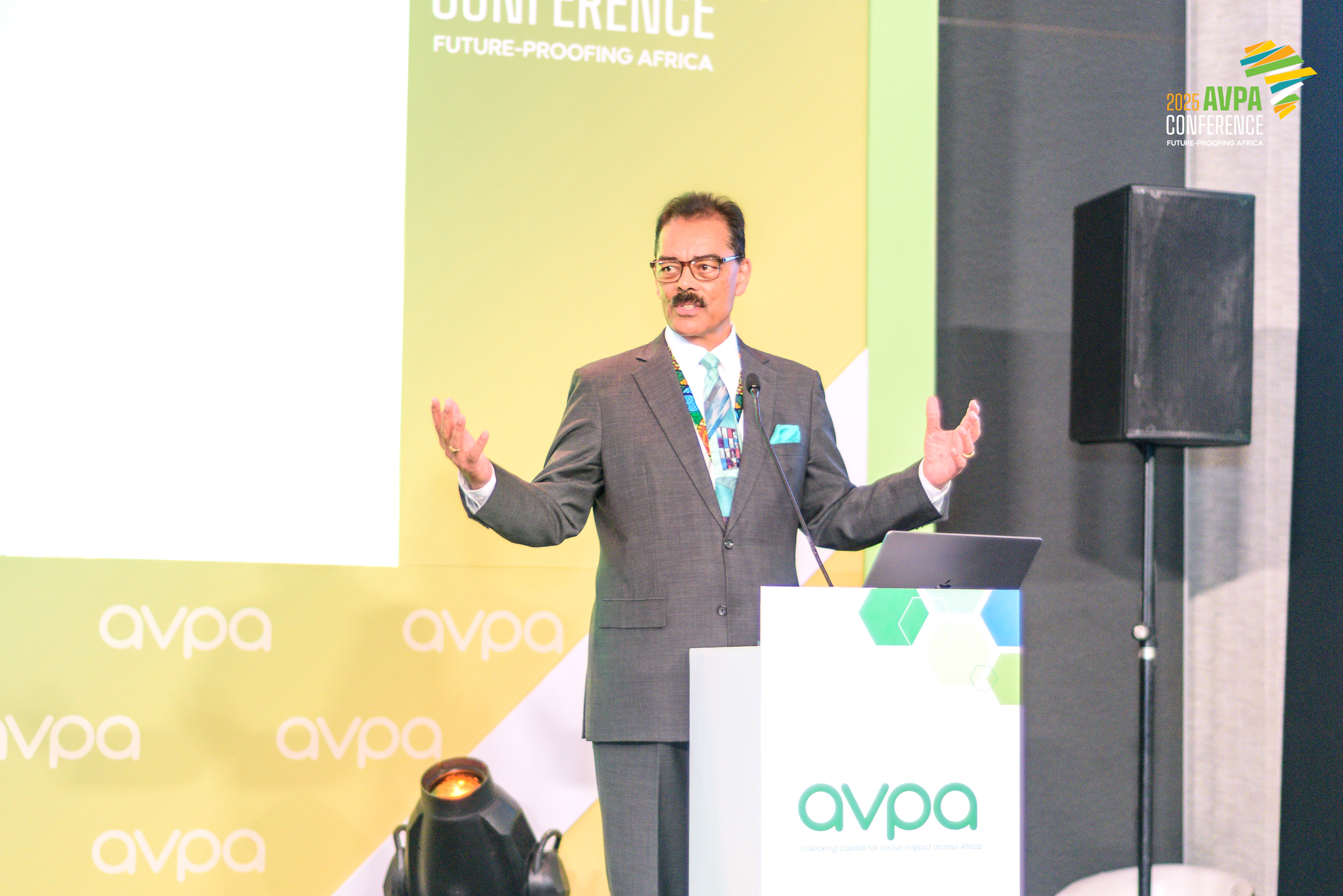 Shah (pictured, right) highlighted Africa’s potential: over 30m km², a projected population of 2.5bn by 2030, and a $2.5tn consumer market. To seize this opportunity, he called for a mindset shift, stronger public–private partnerships and long-term planning beyond short political cycles. He highlighted manufacturing and agribusiness as key growth drivers, citing examples such as precision farming, value chains, and reforestation. He used Bidco to show how connecting farmers to factories creates jobs, supports women, and strengthens communities. “Every Made in Africa product feeds a family, strengthens a farmer, supports a community, and drives progress,” he concluded, showing how these levers can turn Africa’s potential into impact.
Shah (pictured, right) highlighted Africa’s potential: over 30m km², a projected population of 2.5bn by 2030, and a $2.5tn consumer market. To seize this opportunity, he called for a mindset shift, stronger public–private partnerships and long-term planning beyond short political cycles. He highlighted manufacturing and agribusiness as key growth drivers, citing examples such as precision farming, value chains, and reforestation. He used Bidco to show how connecting farmers to factories creates jobs, supports women, and strengthens communities. “Every Made in Africa product feeds a family, strengthens a farmer, supports a community, and drives progress,” he concluded, showing how these levers can turn Africa’s potential into impact.
Why the private sector can’t sit this one out
During the plenary on ‘Private Sector Engagement’, moderator Dr Ola Brown asked: “Why doesn’t Africa turn small companies into big ones, even when capital is available?” Panelists agreed that growth is possible but is challenged by tax hurdles, working capital gaps and uneven financing across countries.
William Nyaoke, Regional Director, East Africa, of Norfund, shared how it took 15 years to start, grow, and exit a company. Panelists emphasised the need for patient, long-term capital through blended finance, noting that philanthropy or impact investing alone cannot drive sustainable growth.
New Coalition for Mental Health Investment
During the AVPA Conference, three major announcements were made.
 The first was the launch of the Coalition for Mental Health Investment (CMHI), a global partnership aiming to scale investments that address mental health needs across generations. AVPA joined four founding partners: McKinsey Health Institute, Wellcome Trust, Kokoro and the Clinton Global Initiative. Together, they introduced a Catalytic Pooled Fund for Mental Health Investments to attract private capital for high-impact programmes, strengthen Africa’s brain economy, and equip the workforce with 21st-century skills like critical thinking.
The first was the launch of the Coalition for Mental Health Investment (CMHI), a global partnership aiming to scale investments that address mental health needs across generations. AVPA joined four founding partners: McKinsey Health Institute, Wellcome Trust, Kokoro and the Clinton Global Initiative. Together, they introduced a Catalytic Pooled Fund for Mental Health Investments to attract private capital for high-impact programmes, strengthen Africa’s brain economy, and equip the workforce with 21st-century skills like critical thinking.
AVPA CEO Dr. Frank Aswani underscored the urgency, noting that Africa is about to have the world’s largest working-age population. By 2050, the UN projects the continent could reach nearly 2.5bn, one billion more than today. He explained that the fund links mental health, skills and investment, “helping unlock private capital in areas that traditionally would not attract funding” while preparing Africa’s workforce to compete globally.
The second announcement was the signing of a strategic Memorandum of Understanding (MoU) with the International Development Innovation Alliance (IDIA) to mobilise new financing for innovation and scale African-led solutions through blended finance and collaboration.
Finally, it was revealed that the 2026 AVPA Conference will be held in Mombasa, Kenya, marking an exciting return to East Africa.
Powering change from within
Throughout the conference, speakers emphasised that Africa’s future is not about reacting to problems but proactively creating opportunities. The continent is shifting from “future-proofing” to “future-building” to unlock its full potential through bold, immediate action.
Speakers were also resolved that Africa must move from dependence to self-determination by creating value at home through collaboration, innovation and investment. The message was clear: Africa’s future will be built, branded and powered from within.
![]() This special conference report was written for Pioneers Post by Vivian Nyaguthie (pictured, left), a young writer and social innovator based in Kenya. Photos and a complimentary press pass for the conference were kindly supplied by AVPA.
This special conference report was written for Pioneers Post by Vivian Nyaguthie (pictured, left), a young writer and social innovator based in Kenya. Photos and a complimentary press pass for the conference were kindly supplied by AVPA.
Create your own user feedback survey
| Ready to invest in independent, solutions-based journalism?
Our paying members get unrestricted access to all our content, while helping to sustain our journalism. Plus, we’re an independently owned social enterprise, so joining our mission means you’re investing in the social economy. |




